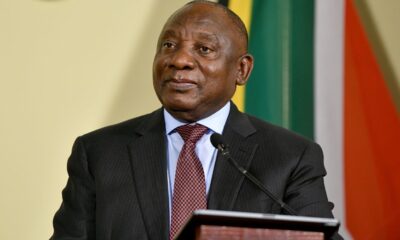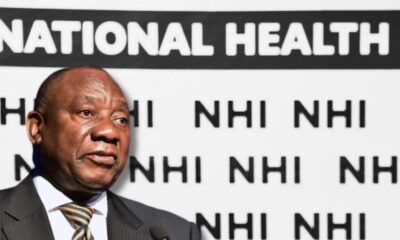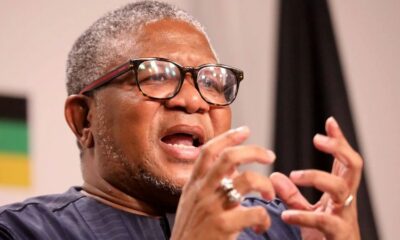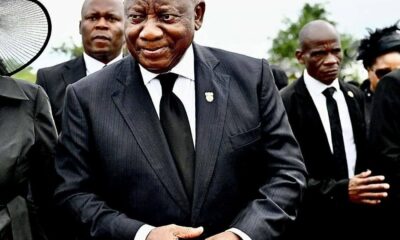News
Ebrahim Rasool: Why Ramaphosa Is Right To Be Careful With New US Ambassador Appointment

A vacancy that is more than just a job
For most people, the idea of appointing a new ambassador might seem straightforward. But for former US ambassador Ebrahim Rasool, the choice of South Africa’s next representative in Washington is a delicate balancing act, one that President Cyril Ramaphosa is right to approach with extreme caution.
Speaking at the G20 Interfaith Forum in Cape Town, Rasool reflected on his own tenure and the political games that can play out behind closed doors. He recalled how US Republicans once intended to leave him in limbo for months before granting formal credentials. He was only accredited in the final week of Joe Biden’s presidency.
Why the caution matters now
Rasool argues that appointing an ambassador too hastily risks more than just bureaucratic delays. If Washington rejects or sidelines South Africa’s choice, it could choke informal lines of communication that currently allow Pretoria to bypass embassy protocol and speak directly to US officials.
The former envoy also warns that South Africa must never allow the US to effectively “choose” its ambassador by favouring candidates who will simply echo American positions. A truly independent envoy, he says, is likely to have expressed criticism of US policy, particularly under President Donald Trump, and that independence is worth protecting.
Lessons from recent rejections
Rasool pointed to the case of Mcebisi Jonas, who was reportedly rejected by Washington earlier this year. He described Jonas as both politically and economically astute, noting that such qualities are often what make envoys unacceptable to those seeking a compliant voice.
When asked about potential successors, Rasool floated a provocative example: someone like Marthinus van Schalkwyk, whose political journey from the National Party to the ANC could satisfy both the White House’s preference for a white envoy and South Africa’s need for principled representation.
Not just a South African problem
While South Africans often feel singled out by US pressure, Rasool says the reality is far broader. Countries like India, Brazil, and even members of the European Union have faced aggressive tactics under Trump. Whether over oil imports from Russia or defence spending levels, Washington’s hardline stance has not been limited to Pretoria.
Rasool believes South Africa should recognise it is in “good company” and focus on standing united, rather than fracturing internally when criticised by the US. He contrasts this with how Indians and Brazilians rally behind their governments in the face of external pressure, even when they disagree with their leaders domestically.
Flipping the narrative
In Rasool’s view, the real story is not about South Africa being irrational or undisciplined, but about a United States under Trump that is increasingly isolated on the global stage, powerful, wealthy, and militarised, but out of step with much of the world.
He warns that if South Africa’s political class keeps turning inward and blaming itself, it risks missing the bigger picture: the need to protect its sovereignty and diplomatic voice in an era of strategic bullying.
Also read: Fake Indian Consulate Calls Target South Africans in New Scam
Follow Joburg ETC on Facebook, Twitter, TikTok and Instagram
For more News in Johannesburg, visit joburgetc.com
Source: IOL
Featured Image: News24



























